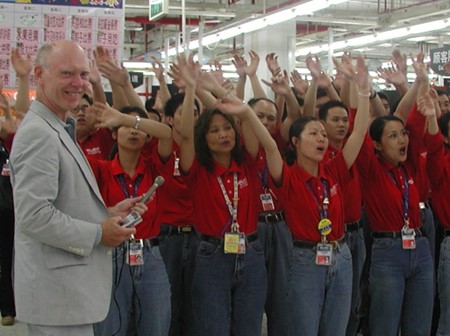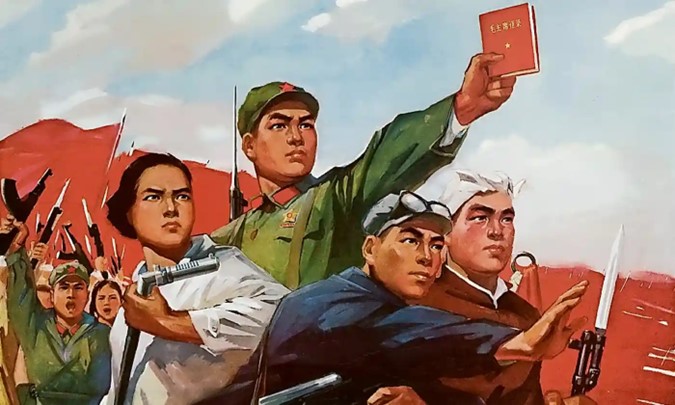In the summer of 1967 two friends and I visited the Chinese embassy in Belgrade, Yugoslavia. We were graduate students in a US-funded programme on east-west relations, and we were eager to get a Chinese perspective.
Received with awkward formality, we were escorted to a reception room and told to wait while our host excused himself, returning a few minutes later with three English-language editions of the little red book, Quotations from Chairman Mao Zedong. The book was a substitute for the briefing we expected.
The little red book is a communist polemic, 313 pages and 33 chapters extolling Chairman Mao, revolution and class struggle. The editions we were handed contained a December 1967 foreword from defence minister Lin Biao, at the time Mao’s heir-apparent. He wrote these words on page one:
Comrade Mao Zedong is the greatest Marxist-Leninist of our era. He has inherited, defended and developed Marxism-Leninism with genius…
Mao Zedong’s thought is Marxism-Leninism of the era in which imperialism is heading for total collapse and socialism is advancing to world-wide victory.
The little red book was the Chinese communist perspective on what was happening in the world.
Mao launched his ‘great proletarian cultural revolution’ a year earlier to purge China of capitalist thinking. Students became roving bands of zealots sweeping through cities dispatching to the provinces those accused of harboring ‘old ideas, old culture, old customs and old habits.’
The cultural revolution was a disaster in which an estimated one million people died and 16 million were sent into internal exile. Mao’s successor, Deng Xiaoping, called the cultural revolution ‘a ten-year-long catastrophe.’
China’s current leader Xi Jinping was caught up in the mayhem. His father was a former high-ranking official who had been purged from the party. Red Guards ransacked the family home in Beijing. At age 15 in 1969, Xi was publicly shamed, paraded through the streets, forced to wear a dunce cap and sent to the countryside. This youthful humiliation is a cause of President Xi’s fixation with stability.
Thirty-eight years later, in 2005, I encountered a transformed, unrecognizable China. Now a foreign correspondent, I was welcomed by managers at the first Walmart Super Center in Shenzhen, the mainland city closest to Hong Kong.
I had arrived early to observe employees stocking shelves and getting ready for the day. To my astonishment while a crowd of eager shoppers waited outside for the doors to open, young employees in red shirts gathered to sing the company song for a visiting journalist. I was shocked by the scene before me. All I could think of was Red Guards from the 1960s waving little red books.

Two Chinas … above, Shenzhen (2005), and, below, Red Guards (1968)

The following year in Washington I had another shock, further evidence that China had fundamentally changed. I was reporting on a leading think tank’s conference on global energy markets. Eminent scholars and analysts had come from around the world.
One speaker in particular got my attention. Mao Yushi, a respected 77-year-old economist from Beijing, told the gathering that markets were far more important than governments in determining prices and allocation of oil and gas. Afterwards I approached Mao and in the course of our conversation asked what he thought of the former communist leader with the same surname. He turned, looked directly at me, and said loudly, ‘I hate Chairman Mao!’ I wondered how he could make such a declaration and still be allowed to live and work in China.
I learned later that Mao Yushi suffered greatly in the cultural revolution. In 2024 this brave scholar, now 95, the recipient of the Milton Friedman prize for economic freedom, moved to Canada and said he would never return to China.
Over the past 45 years China has evolved from communist orthodoxy to a mostly capitalist economy with a single party authoritarian political structure. Starting in 1978 when Deng Xiaoping came to power, China loosened state control over economic activity. Citizens were allowed to have long-term leases on their land. Administered prices set by planners were gradually abolished, as market forces were allowed to determine prices. Similarly, wages were freed from state control. Foreign banks were allowed in, and tax policy was used to attract investors.
The results were stunning, successful beyond anyone’s wildest expectations. Since 1980 a staggering 850 million Chinese were lifted out of poverty. Economic growth often exceeded eight percent annually. Millions of Chinese became rich, buying luxury goods and traveling abroad.
China today leads the world in electric vehicles and digital payments. In big cities, store purchases are typically cashless. The high-speed train in which I traveled from Shanghai to Hong Kong took less than nine hours, half the previous time. China specialist Doug Guthrie, a professor at Arizona State University, says that in many ways China is more capitalist than the United States.
Kevin Rudd is a fluent Mandarin speaker with long experience in China. Now the Australian ambassador to Washington, Rudd describes President Xi as a different kind of Marxist Leninist. In recent years when private sector companies like Alibaba and Tencent became big and powerful, they were identified as a potential threat. Xi came down hard, reminding them that the Chinese Communist Party is supreme and not to be challenged.
The 71-year-old Xi, says Rudd, is a calculated risk-taker who is betting that the United States is in decline, while China with its hybrid mix of capitalism and Marxist-Leninism is rising.
Time will tell.
The views of the writer are not necessarily the views of the Daily Friend or the IRR.
If you like what you have just read, support the Daily Friend

